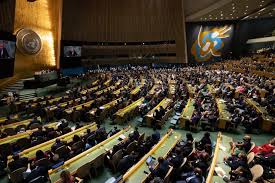
Algerian Foreign Minister Ahmed Attaf is in New York this week, representing his country at the 80th session of the United Nations General Assembly.
Tasked by President Abdelmadjid Tebboune to carry Algeria’s voice on peace, development, and human rights, Attaf’s presence also reflects Algiers’ broader effort to reclaim visibility amid growing international isolation.
Since September 23, Attaf has engaged in a series of meetings and speeches at the UN. Officially, his mission centres on multilateral diplomacy, but observers suggest Algeria is using the global stage to offset domestic economic and political challenges.
A key focus for the minister is the Security Council debate on the Palestinian issue, convened at Algeria’s request alongside other Islamic nations. Analysts note that this initiative follows Algeria’s longstanding strategy of leveraging the Palestinian cause to assert diplomatic influence, even as the country faces internal pressures.
Attaf is also scheduled to participate in discussions on the impact of artificial intelligence on international peace and security, convened by South Korea, the current Security Council president. Yet, Algeria’s limited engagement in digital innovation positions it more as a spectator than a leading contributor in these debates.
Beyond formal sessions, the minister will attend meetings of regional and multilateral groups, including the African Union, the League of Arab States, the Organization of Islamic Cooperation, the Non-Aligned Movement, and the Group of 77 plus China. While these platforms allow Algeria to maintain a presence, its influence has been eclipsed by more proactive African and Arab capitals.
Bilateral discussions with foreign counterparts and heads of international organisations have also been announced. However, many analysts view these talks as largely ceremonial, unlikely to yield immediate solutions to pressing regional issues.
For political commentators, Attaf’s UN engagement underscores Algeria’s challenge in crafting a credible diplomatic strategy. With initiatives across the Sahel and Maghreb facing persistent impasses, New York represents both a stage for visibility and a reflection of the country’s diminished clout on the international scene.



